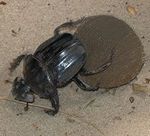Anyone carried out tests between Auto and fixed pressures?
Anyone carried out tests between Auto and fixed pressures?
As many of you know I've been on CPAP for 5 years, for nearly the entire 5 years I've had my ResMed S8 AutoSet Spirit set on Auto 6-20cm although I was titrated at a fixed pressure rating of 10cm. Since moving to the new S9 I'm getting lower AHI's and the S9 does a really good job at keeping my AHI's <1.
I was thinking about carrying out some tests against Auto vs Fixed pressure on the S9 as I have ResScan and can sift through the data, I wonder if any others here have carried out similar tests on other machines to see which is more effective at keeping apnoeas and hypopneas at bay, and whether there is any difference at all?
A lot of doctors and sleep staff I've spoken with over the years tend to think that Auto machines won't respond to apnoeas quickly enough, although do admit that it reduces the length of them and prefer to go with fixed pressure machines. I wondered whether there's any truth in that? All of us that are on APAP machines know that the technology does work and that the APAP machines respond exceptionally quickly to our apnoeas and hypopneas but is there a chance that the constant higher continual fixed pressure will have slightly more of an effect at reducing or stopping apnoeas and hypopneas happening over APAP mode which although it does a really good job might be letting a few get through?
I was thinking about carrying out some tests against Auto vs Fixed pressure on the S9 as I have ResScan and can sift through the data, I wonder if any others here have carried out similar tests on other machines to see which is more effective at keeping apnoeas and hypopneas at bay, and whether there is any difference at all?
A lot of doctors and sleep staff I've spoken with over the years tend to think that Auto machines won't respond to apnoeas quickly enough, although do admit that it reduces the length of them and prefer to go with fixed pressure machines. I wondered whether there's any truth in that? All of us that are on APAP machines know that the technology does work and that the APAP machines respond exceptionally quickly to our apnoeas and hypopneas but is there a chance that the constant higher continual fixed pressure will have slightly more of an effect at reducing or stopping apnoeas and hypopneas happening over APAP mode which although it does a really good job might be letting a few get through?
_________________
| Machine | ||||
 | ||||
| Additional Comments: Running AirSense 10 AutoSet CPAP, previously S9 AutoSet and S8 AutoSet Spirit | ||||
Last edited by dave21 on Sat Mar 13, 2010 5:48 am, edited 1 time in total.
- bearded_two
- Posts: 459
- Joined: Mon Aug 10, 2009 8:01 pm
Re: Anyone carried out tests between Auto and fixed pressures?
I have found that my AHI is lower with fixed pressure than auto with Respironics M series and IntelliPAP. I have also heard that the Respironics can "run away" and go to maximum pressure, causing centrals. This would happen with folks who have their APAP set to 4-20 cmh2o; a tight range should prevent the "run away" problem.
Re: Anyone carried out tests between Auto and fixed pressures?
Hi
I experimented alot with the s8 in Auto over the period of a month - review data every day - and adjusting every night .. wide range to narrow range. I eventually put it into CPAP based on drawing a trend line through my median pressure. My AHI went down significantly when I went from wide to narrow - and a little when I went to fixed. Having it at fixed also improves the amount of leaks because you can set your mask up for one pressure and make sure it doesn't leak at that pressure.
I'm now on a BiPAP. So the experiment was all for naught.. but still a good exercise. I might start fiddling with the BiPAP in Auto mode again .. but I am feeling tons better on 21/17 than I did on 14.
Hope this helps.
Ivan.
I experimented alot with the s8 in Auto over the period of a month - review data every day - and adjusting every night .. wide range to narrow range. I eventually put it into CPAP based on drawing a trend line through my median pressure. My AHI went down significantly when I went from wide to narrow - and a little when I went to fixed. Having it at fixed also improves the amount of leaks because you can set your mask up for one pressure and make sure it doesn't leak at that pressure.
I'm now on a BiPAP. So the experiment was all for naught.. but still a good exercise. I might start fiddling with the BiPAP in Auto mode again .. but I am feeling tons better on 21/17 than I did on 14.
Hope this helps.
Ivan.
_________________
| Mask: AirFit™ N10 Nasal CPAP Mask with Headgear |
| Additional Comments: Started Jan '10 Diag AHI:169. BiPAP BiFlex 1 12/21 |
Re: Anyone carried out tests between Auto and fixed pressures?
Oh .. I also slept better when it was fixed - i.e. I got used to pressure like it was "normal". I also found that turning OFF EPR made a difference in terms of sleep quality.
YMMV.
YMMV.
_________________
| Mask: AirFit™ N10 Nasal CPAP Mask with Headgear |
| Additional Comments: Started Jan '10 Diag AHI:169. BiPAP BiFlex 1 12/21 |
- JohnBFisher
- Posts: 3821
- Joined: Wed Oct 14, 2009 6:33 am
Re: Anyone carried out tests between Auto and fixed pressures?
Sure. Unless you have an ASV machine the APAP machines won't quickly respond to an obstruction.dave21 wrote:... A lot of doctors and sleep staff I've spoken with over the years tend to think that Auto machines won't respond to apnoeas quickly enough, although do admit that it reduces the length of them and prefer to go with fixed pressure machines. I wondered whether there's any truth in that? ...
But they will address:
- when you had more alcohol than normal and have more airway collapse than normal
- when you take some pain medication that also causes more airway collapse than normal
- when you had a very stressful day, which at least for me seems to cause more airway collapse
- when you just have a "bad night" and have more airway collapse than normal
- when you have some nasal congestion so need slightly higher pressure
Your doctors are right that the machine does not respond immediately to changes in needs. But they miss the bigger picture. You don't just sleep for one night! You and your body change over time based on the world in which you live. An APAP machine helps adjust you adjust to those changing conditions.
Just my opinion, based on my own personal experience. But it seems pretty valid for me based on that experience.
_________________
| Mask: Quattro™ FX Full Face CPAP Mask with Headgear |
| Additional Comments: User of xPAP therapy for over 20 yrs. Resmed & Respironics ASV units with EEP=9cm-14cm H2O; PSmin=4cm H2O; PSmax=15cm H2O; Max=25cm H2O |
"I get up. I walk. I fall down. Meanwhile, I keep dancing” from Rabbi Hillel
"I wish to paint in such a manner as if I were photographing dreams." from Zdzisław Beksiński
"I wish to paint in such a manner as if I were photographing dreams." from Zdzisław Beksiński
Re: Anyone carried out tests between Auto and fixed pressures?
Interesting discussion.
I have an S8 auto II CPAP machine. Just got it and still learning. My goal, I think, will be to find a narrow range in APAP mode. This will allow a little extra pressure for those tough nights.
Probably wind up with a min pressure of 9cm and a max of about 11cm. I currently run 9cm fixed on CPAP mode.
Tom..........
I have an S8 auto II CPAP machine. Just got it and still learning. My goal, I think, will be to find a narrow range in APAP mode. This will allow a little extra pressure for those tough nights.
Probably wind up with a min pressure of 9cm and a max of about 11cm. I currently run 9cm fixed on CPAP mode.
Tom..........
_________________
| Machine: ResMed AirSense™ 10 AutoSet™ CPAP Machine with HumidAir™ Heated Humidifier |
| Mask: Mirage Quattro™ Full Face CPAP Mask with Headgear |
| Additional Comments: Sleepyhead for Windows 7 |
Tom...........
Re: Anyone carried out tests between Auto and fixed pressures?
Dave,dave21 wrote:I was thinking about carrying out some tests against Auto vs Fixed pressure on the S9 as I have ResScan and can sift through the data, I wonder if any others here have carried out similar tests on other machines to see which is more effective at keeping apnoeas and hypopneas at bay, and whether there is any difference at all?
This helpful thread by KatieW, where she documented her experience switching from APAP to CPAP, may be of interest to you: viewtopic/t50157/viewtopic.php?f=1&t=47269.
Re: Anyone carried out tests between Auto and fixed pressures?
By your 'experience" are you talking about actual numbers? That is, over a long period, are the improved results during those special circumstances significant enough to overcome the nightly inefficiency of APAP?JohnBFisher wrote: Just my opinion, based on my own personal experience. But it seems pretty valid for me based on that experience.
The circumstances you cite are certainly valid, but I'd estimate (for me) they represent at most 1 night out of 20. In short, the "bigger picture" isn't really that big, IMHO.
To answer the OP, yes, when I first got my APAP, I did a 2-week trial--1 week in each mode--and found my numbers were significantly better using straight CPAP. But, to my knowledge, none of the issues John raised were a factor at that time. I now use straight CPAP at my 90% pressure normally, with a self-titration on APAP for a week every 6-months or so. My numbers are consistently better with CPAP. I've had good nights and bad nights with both.
The OSA patient died quietly in his sleep.
Unlike his passengers who died screaming as the car went over the cliff...
Unlike his passengers who died screaming as the car went over the cliff...
Re: Anyone carried out tests between Auto and fixed pressures?
That is my experience and belief.. the APAP was just not good enough on balance to respond to the Apneas. i.e. overall taking a wide angle view - CPAP in my opinion is better.LinkC wrote:By your 'experience" are you talking about actual numbers? That is, over a long period, are the improved results during those special circumstances significant enough to overcome the nightly inefficiency of APAP?JohnBFisher wrote: Just my opinion, based on my own personal experience. But it seems pretty valid for me based on that experience.
The circumstances you cite are certainly valid, but I'd estimate (for me) they represent at most 1 night out of 20. In short, the "bigger picture" isn't really that big, IMHO.
To answer the OP, yes, when I first got my APAP, I did a 2-week trial--1 week in each mode--and found my numbers were significantly better using straight CPAP. But, to my knowledge, none of the issues John raised were a factor at that time. I now use straight CPAP at my 90% pressure normally, with a self-titration on APAP for a week every 6-months or so. My numbers are consistently better with CPAP. I've had good nights and bad nights with both.
The mystery for me remains : How is BiPAP at 21/17 (AHI 2.5 average - 0 Apnea ) better than CPAP at 14 ( AHI 6 average - 0 Apnea ) - and I do feel a big improvement. Guess it's NOT centrals
_________________
| Mask: AirFit™ N10 Nasal CPAP Mask with Headgear |
| Additional Comments: Started Jan '10 Diag AHI:169. BiPAP BiFlex 1 12/21 |
Re: Anyone carried out tests between Auto and fixed pressures?
I don't know enough about BiPAP to even have an opinion/theory about that. I'd go with whatever works best for YOU.
But if you figure out the mystery, please let us know...
But if you figure out the mystery, please let us know...
The OSA patient died quietly in his sleep.
Unlike his passengers who died screaming as the car went over the cliff...
Unlike his passengers who died screaming as the car went over the cliff...
Re: Anyone carried out tests between Auto and fixed pressures?
Hi, ifrimmel. I don't have any experience with BiPAPs, but could it be that because your BiPAP pressures are higher (21/17) than CPAP (14), perhaps you actually need a higher pressure to keep your airway open, and that's why you're getting better results with BiPAP?ifrimmel wrote:The mystery for me remains : How is BiPAP at 21/17 (AHI 2.5 average - 0 Apnea ) better than CPAP at 14 ( AHI 6 average - 0 Apnea ) - and I do feel a big improvement.
Re: Anyone carried out tests between Auto and fixed pressures?
I will let you know - I have a theory that it is something to do with Hypoventilation and the extra pressure gives me more air - so my O2 levels don't go down as much !! The other weird thing is I now like the pressure relief of the BiPAP (17/21 - so delta of 4cmH20). I HATED EPR even at 1 when I was set to CPAP 14cmH20 on the S8 - in Auto mode it was a TOTAL pain- pressure was ALL OVER the place. Guess the BiPAP is just WAY more sensitive it's "forgiving/flexible/natural" EPR is dumb like a bag of hammers. Some people like it - so shouldn't spoil their fun.LinkC wrote:I don't know enough about BiPAP to even have an opinion/theory about that. I'd go with whatever works best for YOU.
But if you figure out the mystery, please let us know...
DreamOn .. that is what the doctor said.. so I am also inclined to believe him .. BUT - why does the machine not pick up the obstruction and report it as APNEA. I have NO/ ALMOST NO Apneas even at 14.
_________________
| Mask: AirFit™ N10 Nasal CPAP Mask with Headgear |
| Additional Comments: Started Jan '10 Diag AHI:169. BiPAP BiFlex 1 12/21 |
- billbolton
- Posts: 2264
- Joined: Wed Jun 07, 2006 7:46 pm
- Location: Sydney, Australia
Re: Anyone carried out tests between Auto and fixed pressures?
In fact, that is not the case.dave21 wrote:All of us that are on APAP machines know that the technology does work...
There are plenty of user reports here on CPAPtalk, going back over several years, from users who find that APAP is not a sustainable technology for their OSA treatment, while CPAP is.
Cheers,
Bill
_________________
| Machine | Mask | |||
 |  | |||
| Additional Comments: Airmini, Medistrom Pilot 24, CMS 60C Pulse Oximeter, ResScan 6 | ||||
Last edited by billbolton on Sun Mar 14, 2010 5:58 pm, edited 1 time in total.
Re: Anyone carried out tests between Auto and fixed pressures?
Yep. Completely agree with Bill. APAP interesting and fun to "play" with if you have time,inclination, access to the data and the ability/will/courage to change your therapy. Sustainable. No way!
_________________
| Mask: AirFit™ N10 Nasal CPAP Mask with Headgear |
| Additional Comments: Started Jan '10 Diag AHI:169. BiPAP BiFlex 1 12/21 |
Re: Anyone carried out tests between Auto and fixed pressures?
Yes, I just one of these users. I wasn’t able to get use to BiBAP machine, no matter how many times I’ve tried. One of them is still in my closet, practically unused. It is sort of pushing me out from my natural rhythm of breath, while CPAP just sort of keeping me “inflated” from inside like a party balloon. It wasn’t fun at the beginning of treatment, but after more than 4 years it’s sort of OK.billbolton wrote:In fact, that is not the case.dave21 wrote:All of us that are on APAP machines know that the technology does work...
There are plenty of user reports here on CPAPtalk, going back over several years, from users who find that APAP is not a sustaintable technology for their OSA treatment, while CPAP is.
Cheers,
Bill

















